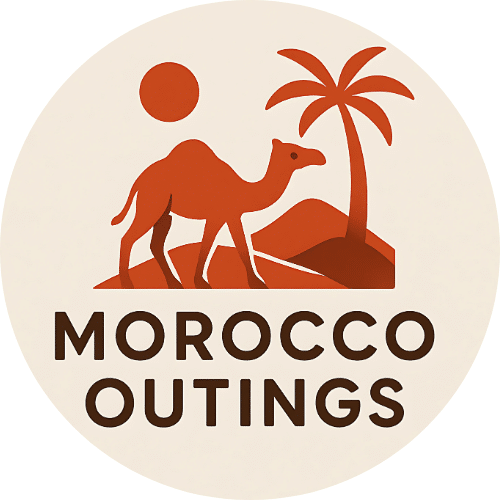Alcohol in Morocco: A Guide For Tourists
Traversing Time with a Glass in Hand
Morocco—where Atlantic breezes meet mountain ranges and desert horizons—carries a quieter, often overlooked narrative about alcohol. From early Mediterranean viticulture to today’s carefully regulated market, the story weaves agriculture, faith, hospitality, and modern commerce into one tapestry. Beer, wine, and spirits each play distinct roles, signaling shifting norms across centuries and offering visitors a nuanced lens on local life.
The Ancient Elixir – Vines, Grain, and Crossroads of Influence
Long before contemporary borders, traders and settlers brought vines, presses, and fermentation know-how to North Africa’s western reaches. Wine was a sign of technique and trade networks; grain-based ferments likely followed wherever barley and bread flourished. Over time, Islamic teachings reshaped public attitudes and practices around alcohol, yet agricultural knowledge didn’t vanish. It settled into pockets—household traditions, small producers, and later, organized vineyards—preserving skills that would resurface in new forms.
From Orchard to Alembic – The Roots of Mahia
One distinctive thread is mahia, a clear spirit historically distilled from figs (and sometimes other fruits). It holds deep ties to Jewish-Moroccan communities and, in many places, remains a cultural reference point—served sparingly, often ceremonially, and with an emphasis on conviviality. Its persistence illustrates Morocco’s subtle balance: heritage respected, modesty observed, and craft kept alive through families and local specialists.
The Modern Melange – Alcohol in Contemporary Morocco
Today, alcohol is present but purposeful. Licensed hotels, restaurants, and specialty shops stock a spectrum: crisp lagers for the heat, approachable table wines, and fuller blends reflecting maturing viticulture. Wine lists may nod to coastal plains and sun-bathed slopes, where soils and maritime influences shape style. Spirits appear where licensing allows, often framed by an atmosphere that prizes discretion over display. Social expectations vary—some communities abstain entirely, others permit moderate, private enjoyment. Public drunkenness is broadly frowned upon, not merely as a legal matter but as a breach of decorum and respect for shared spaces.
Nightlife, Quietly – Contemporary Etiquette Over Spectacle
Evenings that include alcohol tend to favor calm conversation over spectacle. Venues that serve are clearly designated, and staff are attentive to local custom. Dress and conduct lean toward understated; ordering is unhurried; and the guiding principle is consideration: of neighbors, of staff, and of the surrounding community. The result is a setting where tasting and hospitality coexist with restraint.
Navigating Nuances – Regional Variations and Practical Tips
- Availability varies. Access is generally easier in larger urban areas and destinations accustomed to international visitors; in conservative or rural zones, options can be limited or absent.
- Climate matters. Dry air and seasonal heat amplify alcohol’s effects; pace yourself, hydrate often, and pair drinks with food.
- What to try. Expect familiar lagers, a modest but evolving selection of Moroccan wines, and—where appropriately offered—traditional fruit distillates. Choose reputable lists and labeled bottles; avoid unlabeled “home” liquors unless you have clear, trusted guidance.
- How to order. Licensed venues will make the boundaries clear. If uncertain, a quick, polite question to your server about house rules is always welcome.
- How to carry. Discretion extends beyond the table. Keep purchases well packed; avoid open display in public spaces.
The Duty-Free Dynamics and Legal Landscape
Alcohol sales operate under licensing and regulation. Policies can tighten around religious holidays, and rules may differ by locality. Buying from duty-free on arrival or from licensed outlets is common among visitors, but time-limited purchase windows and quantity rules may apply. Drinking is restricted to authorized settings; consuming in public or unlicensed places risks penalties. Identification can be requested at point of sale, and venues reserve the right to decline service—especially if decorum might be compromised.
Hospitality and Boundaries – Reading the Room
Moroccan hospitality is renowned, and when alcohol is present, it tends to be framed by care: thoughtful pours, food alongside, and an emphasis on conversation rather than excess. Equally important is knowing when it’s inappropriate—certain gatherings, neighborhoods, or moments call for abstention. Observing cues from hosts and staff is both courteous and culturally fluent.
Craft and Terroir – A Quiet Renaissance
Viticulture has seen periods of expansion and consolidation, with producers focusing on styles that suit sun-drenched days and cool evenings: refreshing whites and rosés, supple reds with gentle tannins, and blends aiming for balance over power. Brewers keep things light and crisp. Artisanal pushes appear in pockets—better vineyard practices, cleaner fermentations, and more consistent bottling—signs of a sector seeking quality without fanfare.
Sensible Enjoyment – A Short Traveler’s Checklist
- Choose licensed, reputable venues and labeled products.
- Pair drinks with meals; alternate with water.
- Keep voices low and manners high; avoid public intoxication entirely.
- During religious observances, expect tighter norms and limited availability.
- When in doubt, ask—polite questions prevent missteps.
A Toast to Moroccan Balance
Morocco’s relationship with alcohol is measured, deeply contextual, and unmistakably its own. It blends inherited skills with present-day sensitivities; it prizes warmth without inviting excess. For travelers willing to engage on these terms, the experience is richer: a taste of local craft, an lesson in courtesy, and a glimpse of how tradition and modernity can share a table. Raise a gentle glass and say “Besseha!”—to your health—as you navigate a culture where welcome and restraint walk hand in hand.

